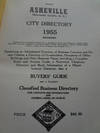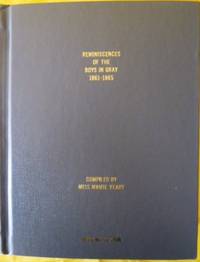![An Address to the Graduating Class of the Medical School in the University at Cambridge [Harvard University] on Wednesday, March 9, 1864](https://d3525k1ryd2155.cloudfront.net/h/617/659/1399659617.0.m.jpg)
An Address to the Graduating Class of the Medical School in the University at Cambridge [Harvard University] on Wednesday, March 9, 1864
by Andrew, John A
- Used
- Signed
- first
- Condition
- See description
- Seller
-
North Garden, Virginia, United States
Payment Methods Accepted
About This Item
Boston: Ticknor and Fields, 1864. First edition.
1864 ADDRESS OF ABOLITIONIST GOVERNOR OF MASSACHUSETTS INVITED BY HARVARD LUMINARIES TO GRADUATING CLASS OF HARVARD MEDICAL SCHOOL, EXTOLLING CONTRIBUTIONS OF MASSACHUSETTS MDs TO WAR EFFORT--INSCRIBED TO POPULAR CRITIC E P WHIPPLE.
9 inches tall pamphlet, gray printed wrappers, inscribed top cover, "E. P. Whipple Esq with regards of J. A. Andrew." iv, 28 pp. Soiling to covers, string binding perished, contents complete, pages unmarked, good+.
JOHN ALBION ANDREW (1818 – 1867) was a Massachusetts lawyer and politican. He was elected in 1860 as the 25th Governor of Massachusetts, serving between 1861 and 1866, and led the state's contributions to the Union cause during the American Civil War. He was a guiding force behind the creation of some of the first African-American units in the United States Army, including the 54th Massachusetts Infantry. Andrew was a radical abolitionist of slavery from an early age, engaged in the legal defense of fugitive slaves against owners seeking their return. He provided legal support to John Brown after his 1859 raid on Harpers Ferry, Virginia, raising his profile and propelling him to the Massachusetts governor's chair. Honored in the Governor's address, LUTHER VOSE BELL (1806 – 1862) was one of the thirteen mental hospital superintendents who met in Philadelphia in 1844 to organize the Association of Medical Superintendents of American Institutions for the Insane (AMSAII), now the American Psychiatric Association, and the first medical specialty society in the United States. In addition to his medical practice, he carried on the family tradition of serving in politics and public office. He was elected in New Hampshire as a state representative and served on the legislative committee to investigate the status of the insane in New Hampshire. He lobbied vigorously for a state institution. With the advent of the U.S. Civil War, Bell applied for a commission as a surgeon in the U.S. Army and was assigned to the Eleventh Regiment of Massachusetts Volunteers. He took part in the Battle of Bull Run in Virginia. He became ill in February 1862 and died.
HARVARD FACULTY WHO INVITED THE GOVERNOR TO SPEAK:
DAVID HUMPHREYS STORER (1804—1891) served as dean of the Faculty of Medicine at Harvard Medical School from 1855–1864, and published on the reptiles and fishes of New England. He was elected as a member of the American Philosophical Society in 1872. GEORGE CHEYNE SHATTUCK, JR (1813- 1893) received his M. D. from Harvard, and from 1855 to 1859 served as professor of clinical medicine, and from 1859 to 1873, professor of the theory and practice of medicine. In 1849 he succeeded Oliver Wendell Holmes as visiting physician to the Massachusetts General Hospital and served in this capacity for 36 years.
HENRY INGERSOLL BOWDITCH (1808–1892) was a prominent Christian abolitionist. He graduated from Harvard Medical School in 1832, and from 1859 to 1867 was Jackson professor of clinical medicine at Harvard; he later founded the Massachusetts State Board of Health.
OLIVER WENDELL HOLMES (1809 –1894) was an American physician, poet, and polymath based in Boston, acclaimed by his peers as one of the best writers of the day. He was also an important medical reformer. In addition to his work as an author and poet, Holmes also served as a physician, professor, lecturer and inventor and, although he never practiced it, he received formal training in law. After earning his MD from Harvard Medical School in 1836, he rose to professor of medicine and became an advocate for various medical reforms and notably posited the controversial idea that doctors were capable of carrying puerperal fever from patient to patient.
JOHN BARNARD SWETT JACKSON (1806 –1879) was a surgeon and pathologist, first curator of the Warren Anatomical Museum, and dean of Harvard Medical School from 1853 to 1855.
EDWARD HAMMOND CLARKE (1820 – 1877) obtained an undergraduate degree came from Harvard College and a medical degree from the University of Pennsylvania. Based in Boston, Clarke specialized in otology and published several books including Sex in Education; or, A Fair Chance for the Girls. He held a teaching position at Harvard Medical School from 1855 to 1872.
HENRY JACOB BIGELOW (1818 – 1890) was Professor of Surgery at Harvard University. A dominating figure in Boston medicine for many decades, he is remembered for the Bigelow maneuver for hip dislocation, a technique for treatment of kidney stones, and other innovations. He was instrumental in bringing the anesthetic possibilities of ether to the attention of practicing physicians.
CALVIN ELLIS (1826-1883) received hid MD from Harvard in 1849, serving then a year in the Massachusetts General Hospital as house physician. He was appointed Professor of Clinical Medicine in the Harvard Medical School and visiting physician at the General Hospital in 1864, succeeding Bowditch in both offices.
PROVENANCE: EDWIN PERCY WHIPPLE (1819 –1886) was an American essayist and critic, who became the Boston correspondent to The Literary World. Historian Perry Miller called Whipple "Boston's most popular critic." Whipple was a close friend of Nathaniel Hawthorne. After Hawthorne's death in 1864, Whipple served as a pallbearer for his funeral alongside Amos Bronson Alcott, Ralph Waldo Emerson, James T. Fields, Oliver Wendell Holmes, Sr., and Henry Wadsworth Longfellow.
Reviews
(Log in or Create an Account first!)
Details
- Seller
- Biomed Rare Books
(US)
- Seller's Inventory #
- 1108
- Title
- An Address to the Graduating Class of the Medical School in the University at Cambridge [Harvard University] on Wednesday, March 9, 1864
- Author
- Andrew, John A
- Format/Binding
- Pamphlet in printed paper wrappers
- Book Condition
- Used
- Quantity Available
- 1
- Edition
- First edition
- Publisher
- Ticknor and Fields
- Place of Publication
- Boston
- Date Published
- 1864
- Weight
- 0.00 lbs
- Keywords
- medicine; war; Civil War; America; Harvard; politics
- Bookseller catalogs
- RBMS 2021;
Terms of Sale
Biomed Rare Books
30 day return guarantee, with full refund including original shipping costs for up to 30 days after delivery if an item arrives misdescribed or damaged.
About the Seller
Biomed Rare Books
About Biomed Rare Books
Glossary
Some terminology that may be used in this description includes:
- First Edition
- In book collecting, the first edition is the earliest published form of a book. A book may have more than one first edition in...
- Fair
- is a worn book that has complete text pages (including those with maps or plates) but may lack endpapers, half-title, etc....
- Good+
- A term used to denote a condition a slight grade better than Good.
- New
- A new book is a book previously not circulated to a buyer. Although a new book is typically free of any faults or defects, "new"...
- Wrappers
- The paper covering on the outside of a paperback. Also see the entry for pictorial wraps, color illustrated coverings for...
- Inscribed
- When a book is described as being inscribed, it indicates that a short note written by the author or a previous owner has been...
Frequently asked questions
Also Recommended
-

Save 10% on every purchase!
Join the Bibliophiles’ Club and start saving 10% on every book.
$29.95 / Year








